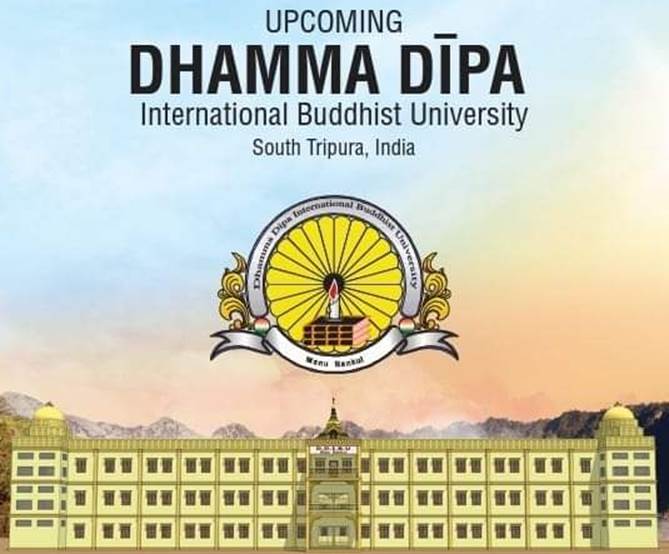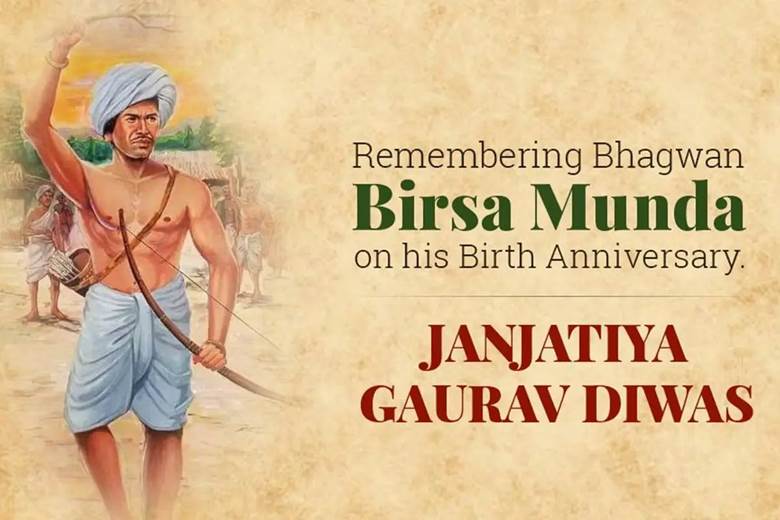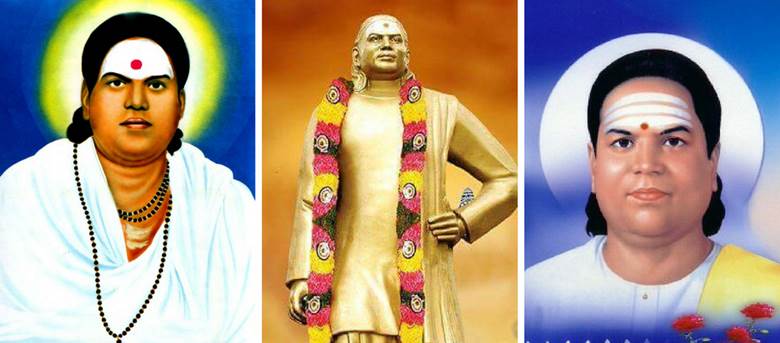Description

Copyright infringement not intended
About
- The chief monk of the World Buddhist Pope Association of South Korea laid the foundation stone for the Dhamma Dipa International Buddhist University at Manu Bankul in Tripura.
- As per the estimates nearly Rs. 100 crores might be spent on the project. The entire expenditure would be borne by the Buddhist community.
- The University is expected to become the first Buddhist-run university in India to offer Buddhist education along with courses in other disciplines of modern education as well.
- The authorities are discussing with the government and University Grants Commission (UGC) to find out the possibilities of starting classes in a temporarily rented place till a permanent structure is built.
University Grants Commission (UGC)
- University Grants Commission is a statutory body under the University Grants Commission Act, of 1956.
- UGC is charged with the task of coordinating and maintaining standards of higher education in India.
- It provides recognition to universities and also allocates funds to universities and colleges.
- UGC headquarters are in New Delhi, and it also has 6 regional centres.
- All grants to universities and higher learning institutions are handled by the UGC.
- In 2015-16, the Union government initiated a National Institutional Ranking Framework under UGC to rank all educational institutes.
- UGC also conducts the National Eligibility Test (NET) for the appointments of teachers in colleges and universities.
- M Jagadesh Kumar is the current chairman of the UGC.
Buddhism in India:
Origin:
- Siddhartha Gautam was born in 563 BC into a royal family of the Sakya clan who ruled from Kapilvastu, in Lumbini. At age of 29, Gautama left home and embraced a lifestyle of asceticism.
- After 49 days of meditation, Gautama attained enlightenment under a pipal tree at Bodhgaya in Bihar.
- Buddha gave his first sermon in the village of Sarnath, near the city of Benares in UP. This event is known as Dharma-Chakra-Pravartana (turning of the wheel of law).
- Died at the age of 80 at Kushinagara a town in UP. The event is known as Mahaparinibban.

Tenets of Buddhism:
- Avoid the two extremes of indulgence in worldly pleasure and the practice of strict abstinence.
- Buddha ascribed instead the 'Madhyam Marg' or the middle path which was to be followed.
- Four noble truths: Suffering (dukkha) is the essence of the world, Every suffering has a cause – Samudya, Suffering could be extinguished – Nirodha, It can be achieved by following the Atthanga Magga
- Eight Fold Paths: Right view, Right intention, Right speech, Right action, Right livelihood, Right mindfulness, Right effort, Right concentration
- Buddha established a code of conduct, also known as the Five Precepts or Pancasil - Violence, stealing, sexual misconduct, lying or gossip, taking intoxicating substances
Major Buddhist Texts:
- Three Pitakas: Vinaya Pitaka (rules of conduct), Sutta Pitaka ( Dhamma of Buddha): divided into five Nikayas: Digha, Majjhima, Samyutta, Anguttara, Khuddaka, Abhidhamma Pitaka (philosophical analysis)
- Other important Buddhist texts include Divyavadana, Dipavamsa, Mahavamsa, Milind Panha etc.
Buddhist Councils:
- 1st Council: It was held in the Sattapani cave at Rajgriha soon after the Mahaparinirvan of the Buddha, around 483 BC under the patronage of King Ajatshatru and was presided over by Mahakasyapa, a monk.
- 2nd Council: held in Vaishali under the patronage of king Kalasoka in 383 BC. It was presided over by Sabakami.
- 3rd Council: 250 BC in Patliputra under the patronage of Ashoka and was presided over by Moggaliputta Tissa.
- 4th Council: held in 72 AD at Kundalvana, Kashmir. It was presided over by Vasumitra, while Asvaghosa was his deputy under the patronage of King Kanishka of the Kushan Empire. Buddhism was divided into Mahayana and Hinayana.
Schools of Buddhism:
- Mahayana means "Great Vehicle". It believes in the heavenliness of Buddha and Idol worship of Buddha and Bodhisattvas embodying Buddha Nature.
- Hinayana means lesser vehicle. It believes in the original teaching of Buddha or the Doctrine of elders. It does not believe in Idol worship and tries to attain individual salvation through self-discipline and meditation.
- Theravada: is a Hinayana sect, developed in Sri Lanka and subsequently spread to the rest of Southeast Asia.
- Vajrayana: means “The Vehicle of the Thunderbolt”, also known as tantric Buddhism.
- Zen: It is a school of Mahayana Buddhism that originated in China.

Must Read: https://www.iasgyan.in/blogs/buddhist-terminologies-important-for-upsc
https://indianexpress.com/article/north-east-india/tripura/world-buddhist-pope-association-chief-shakya-gasan-buddhist-varsity-tripura-8293248/
https://t.me/+hJqMV1O0se03Njk9













